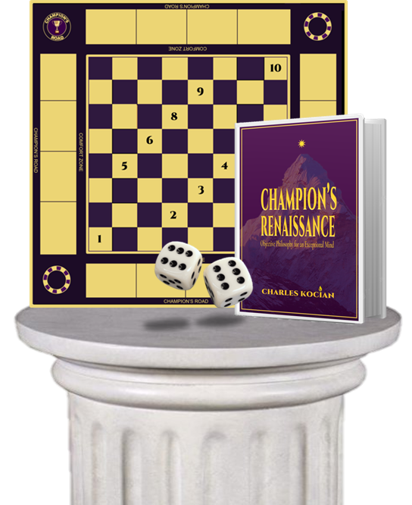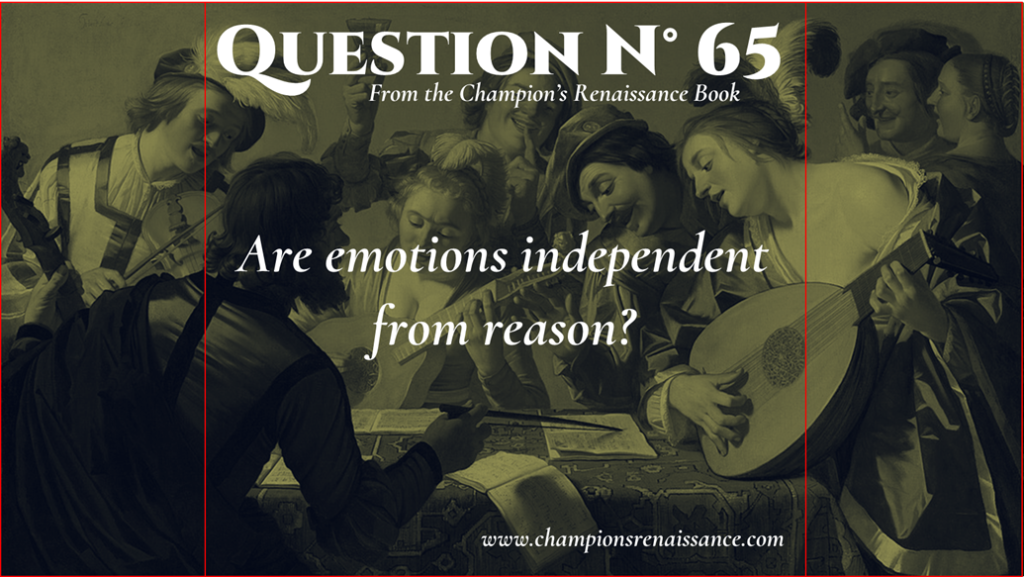
(Answer at the end).
EMOTIONS
By Charles Kocian
On August 20 Russia Luna 25 rocket, who was launched to space one week earlier, crashed into the Moon. Besides that, the mission was successful and gain data for further attempts. But what kind of emotions has this fact caused? Well, it depends on the intellectual background of who is experiencing the emotion. For the Russians scientists, perhaps a mixture of sadness, frustration, rage, disappointment but also pride. For Russian enemies, a mixture of happiness, vengeance and perhaps false superiority. As we can see, emotions derive from intellectual individual convictions.
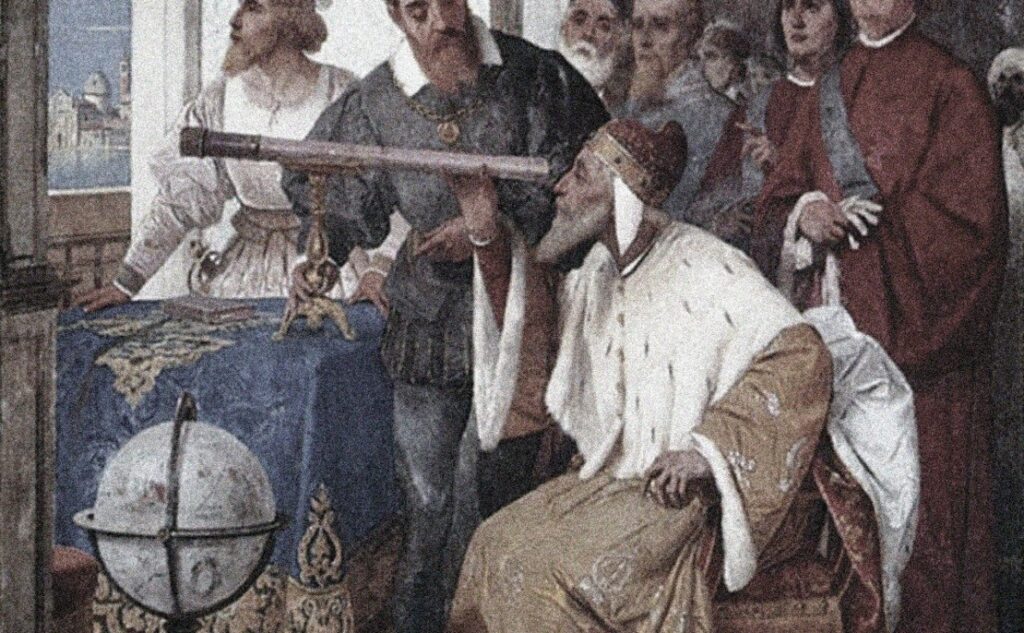
Galileo showing the evidence.
In the Renaissance, the intellectual convictions of the Catholic Church punished with rage the intellectual convictions of Galileo and condemned him to life prison. The Catholic Church relied their intellectual convictions in faith and scriptures, but also in the rational Ptolemy’s Theory that proved mathematically that the Earth was still at the centre of the universe, and all the planets and stars were circumventing around the Earth, including the sun.

Parts of Copernicus book.
But Copernicus, just before his death in 1543, published On the Revolutions of the Celestial Spheres, demonstrating the mathematical errors of Ptolemy’s Theory. As Wikipedia says: “Copernicus made three observations of Mercury, with errors of −3, −15 and −1 minutes of arc. He made one of Venus, with an error of −24 minutes. Four were made of Mars, with errors of 2, 20, 77, and 137 minutes. Four observations were made of Jupiter, with errors of 32, 51, −11 and 25 minutes. He made four of Saturn, with errors of 31, 20, 23 and −4 minutes.”
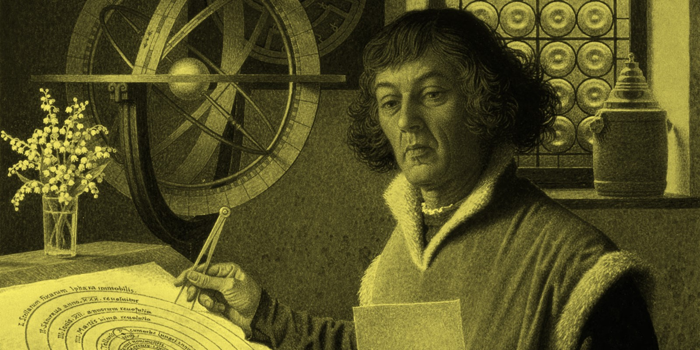
Copernicus triggered the Copernican Revolution.
Copernicus in its early years studied at Kraków where he developed its critical thinking faculties. He found logical contradictions in the two systems of astronomy that universities where teaching. One was Aristotle’s theory of the homocentric spheres. The other was the theory of Ptolemy, with its complicated mechanisms of eccentrics and epicycles. He pursued the cause of this logical contradictions and years later he discovered the objective structure of the Solar System.
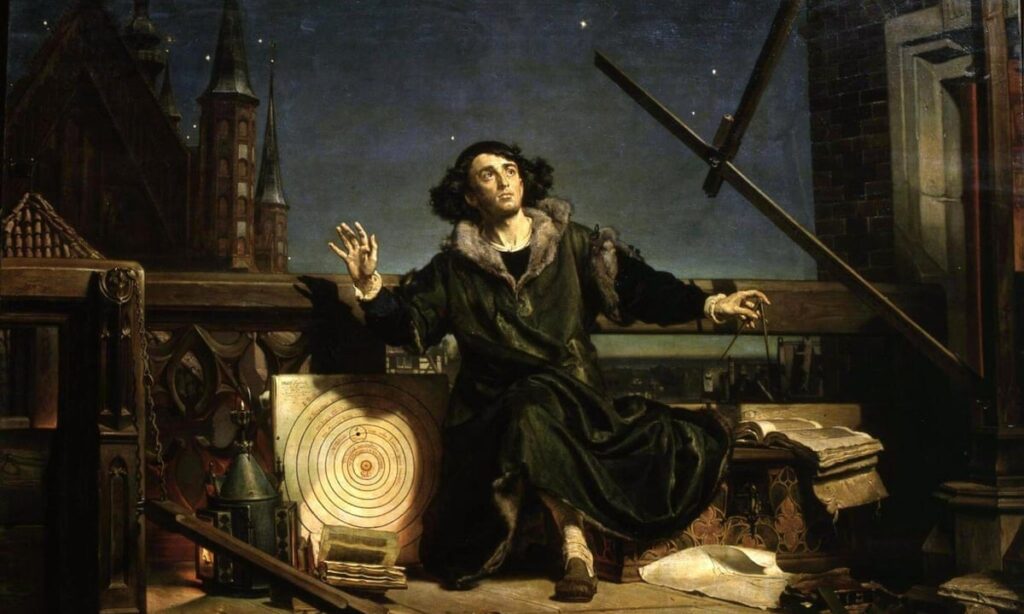
Copernicus, the great polymath.
In the year 1533, Pope Clement VII, in a private meeting with two cardinals learned the Copernicus’s heliocentric system and he was very pleased. It was a major event in the history of science, triggering the Copernican Revolution and making a pioneering contribution to the Scientific Revolution. Some years later, although Pope Urban VIII encouraged Galileo to publish The Dialogue, didn’t have the enough power to oppose the Spanish Cardinal Inquisitors who condemn Galileo for life.
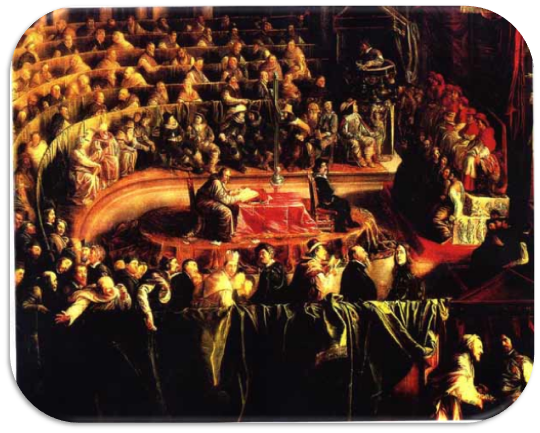
Trial of Galileo.
Something similar occurred to Socrates in ancient Athens when he was punished to death. In its painting, Jacques Louis David, a French painter who was friend of Robespierre, captures the historic moment when Socrates is convicted to death by the Athenian courts. Through detailed and articulated gestures, body attitudes and facial expressions the painter express the emotions of Socrates and its students. Socrates is ready to grasp the cup of hemlock, offered by a disciple who cannot see the act.
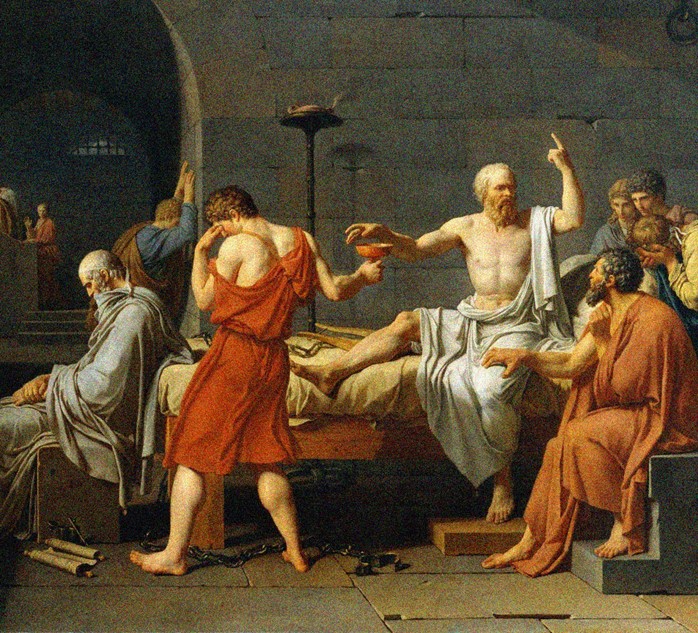
Death of Socrates, painted by Jacques Louis David in 1787.
CONCLUSION
Emotions are subjective (experienced by the subject) and derives not from events, but on how they are interpreted by the individual, accordingly to its intellectual convictions, most of them, subconscious. An emotion is the reaction to a belief. In the Socrates painting it is clear that his emotions are very different from its students. In evolutionary time, men have always reacted to its intellectual convictions, who may be scientific or unscientific, objective or subjective, based on facts or wishful thinking. With Luna 25 Russian Mission, Galileo, Copernicus and Socrates examples, history shows that objective reality always wins when it comes to emotions. So, if objective reality always wins, the only way to achieve the good-life-emotions of eudemonia is to discover objective intellectual convictions, because if they are real, based in facts, you will experience objective emotions that matches objective reality where you’re real existence exists in the physical space. This means that, only in that case, there will be no cognitive dissonance between reality, knowledge and emotions. The person who accomplishes that is the champion of himself, a choice an elite few dare to pursue.
Now the answer to question 65.
QUESTION N° 65
Are emotions independent from reason?
a) Yes.
b) No.
The answer is: b) No. Emotions derives from intellectual convictions. The emotion is the effect, the intellectual conviction is the cause. The origin of emotions is intellectual. Emotions derive from an intellectual involuntary evaluation. This is not noticed because it occurs at the speed of light and automatically. Find the wider explanation in the book.
Leave your comments here.
